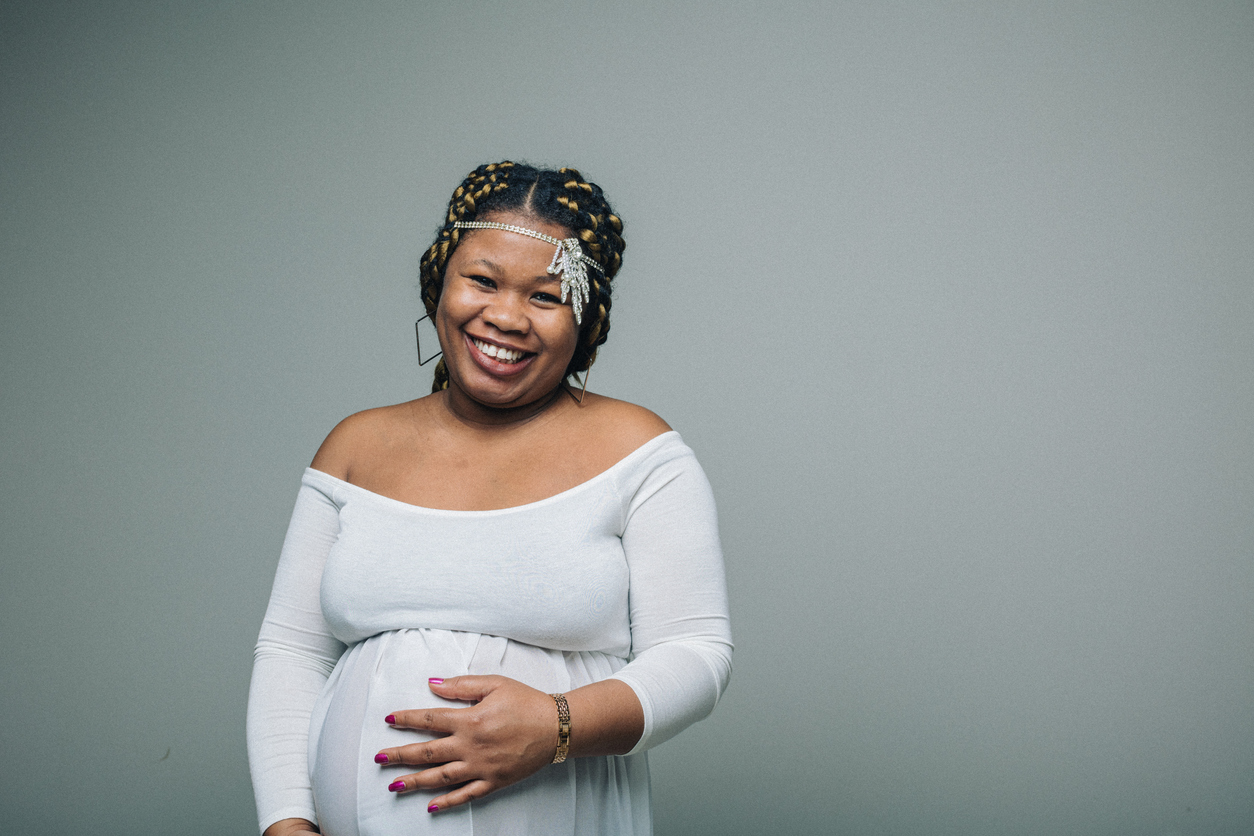Black Maternal Health Week: Facts and Stats You Should Know

April is National Minority Health Month, and every year, April 11th – 17th is Black Maternal Health Week (BMHW).
There are some sobering statistics surrounding the health of Black mothers and babies, but there’s also a lot of encouraging action emerging from both the government and the private sector.
Most importantly, there are things we all can do as individuals to improve Black infant and maternal health outcomes both during delivery and postpartum.
Want to learn more?
What Is Black Maternal Health Week?
Black Maternal Health Week was created in 2021 by President Joseph Biden and Vice President Kamala Harris as part of the American Rescue Plan.
The purpose of Black Maternal Health Week is to draw attention to racial disparities in maternal health care and health service, with a view toward improving health equity and birth justice.
Black Maternal Health Week is part of the Momnibus Act put forth by the Black Maternal Health Caucus, with the aim of reducing maternal morbidity and mortality among vulnerable populations.
What Is the theme of Black Maternal Health Week 2023?
This year, the theme of BMHW is ‘Our Bodies Belong to Us: Restoring Black Autonomy and Joy’
The facts surrounding the experiences of Black mothers in the United States are stark. But part of the solution is empowering and celebrating Black families.
We’ll discuss this more in a bit.

Which States Recognize Black Maternal Health Week?
Black Maternal Health Week is a national week spotlighting Black maternal health. New York and California are among the states that have passed legislation to recognize Black Maternal Health Week, and plenty of other states are putting forth legislation addressing racial health inequality.
What Is One Thing People Can Do To Improve Black Maternal Health?
There are a lot of things that we can do to improve Black maternal health, and we’ll discuss them in a bit.
For now, though, one of the most important things we all can do is learn how to support the pregnant and postpartum people in our lives.
The CDC’s Hear Her campaign provides specific information that can help.
7 Facts about Black Maternal Health in the United States
1. There’s a Black Maternal Health Crisis
Black women are three times more likely to die from a pregnancy-related cause than white women. Black infants are much more likely to die in their first year than white infants.
According to the Centers for Disease Control and Prevention (CDC), this comes down to a combination of factors, including:
- Structural racism
- Implicit bias of healthcare workers
- Underlying chronic conditions
2. Health Disparities Exist Regardless of Income or Wealth
One might think that these differences come down to socioeconomics. There are, after all, significant gaps in wealth and income between Black and white populations in the US. Moreover, people with lower incomes have limited access to health care and are more likely to be uninsured.
But a recent study found that the gap in infant and maternal death is there regardless of income or wealth.
3. Racial Disparities Exist Whether Mothers Use Private Insurance or Medicaid
If you have a good healthcare plan, that’s all that matters. Right?
Not necessarily.
A recent report by Blue Cross / Blue Shield has found that Black women are 66% more likely to experience a Severe maternal morbidity (SMM) event than white women, regardless of whether they’re privately insured or use public health providers through Medicaid.
One of the causes of pregnancy-related deaths is underlying chronic health issues such as diabetes and hypertension. And, as we’ll explain in a bit, structural racism plays a large part in this.
On top of that, implicit bias of healthcare providers measurably affects the quality of care for both mothers and infants, whether those providers are employed by Medicaid, or are in private practice.
4. Structural Racism Has Measurable Health Effects
Yes, structural racism is part of the problem.
Structural racism may sound abstract, and some deny that it exists at all. However, numerous recent studies have shown that living in a structurally racist society has real effects on cardiovascular health.
In addition to decreased access to quality health care, the stress of living with structural racism is tied to high blood pressure and an increased risk of cardiovascular disease, both of which can increase the risk of a complicated pregnancy, or even maternal mortality.
5. Black Doctors Mean Better Outcomes
Another recent study found that when Black mothers and infants are treated by Black doctors, outcomes are better overall. This is especially true in the case of complicated births.
This is due to a combination of factors.
Firstly, patient-doctor trust tends to be greater. As a result, pregnant people are more likely to avail themselves of preventive maternity care services, such as prenatal screenings.
Also, Black doctors are more aware of specific medical challenges that their patients might be experiencing and are thus more prepared to take action when needed.
Finally, Black mothers and infants being treated by Black doctors are not subject to the implicit biases that demonstrably affect their level and quality of care.
6. Federal and State Governments are Taking Action
Black Maternal Health Week isn’t just for show. Federal, state, and local efforts are underway to improve the availability of quality maternal health care, reduce structural and individual bias, and establish reproductive justice for all. Here are a few examples:
In 2021, the Black Maternal Health Caucus introduced the Black Maternal Health Momnibus Act. If passed, this act will address the social determinants of health, fund community organizations fighting for Black Maternal Health, expand Medicaid to include 12 months of postpartum care, and more.
State-level politicians are also taking action. North Carolina Senator Natalie Murdock, for example, has put forth a bill addressing health inequality as a social justice issue. Michigan State Senator Erika Geiss introduced legislation to make doula care available to Medicaid recipients. And South Carolina State Representative Wendy Brawley has introduced an anti-bias training bill.
And this is just the beginning. ...
7. Black-Led Activism Is Empowering Black Mothers
Organizations like the Black Mamas Matter Alliance, Black Women Birthing Justice, and the Black Women’s Health Imperative are empowering Black mothers, as well as pregnant and postpartum people, and raising awareness among healthcare workers about health inequities.
As allies, two of the most important things we can do are to listen and support Black mothers, pregnant and postpartum people, and to amplify the voices of Black-led activists leading the charge.
How Can We Improve Black Maternal Health?
- Get involved with local activism promoting maternal wellness and well-being. Whether this means promoting breastfeeding, working for healthcare in a human rights context, or supporting efforts toward racial reproductive justice, every bit of help counts.
- Support the work of Black-led advocacy groups like the Black Mamas Matter Alliance (BMMA). Activists know best what their communities need, and supporting their work is a direct and powerful way to promote Black maternal health.
- Use your social media to amplify the voices of Black activists working for reproductive justice.
- Volunteer for a clinical trial through the National Institute of Health.
- Most importantly, listen to the Black mothers, and pregnant and postpartum people in your life, and be prepared to offer support if asked.

